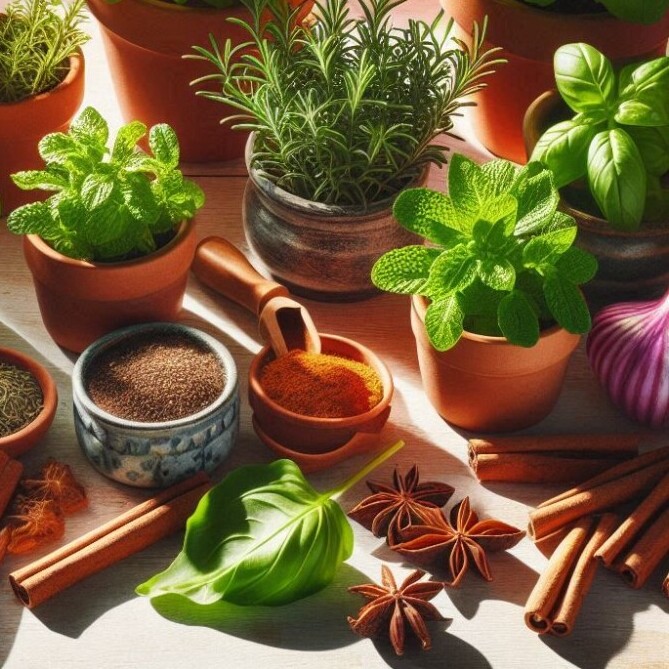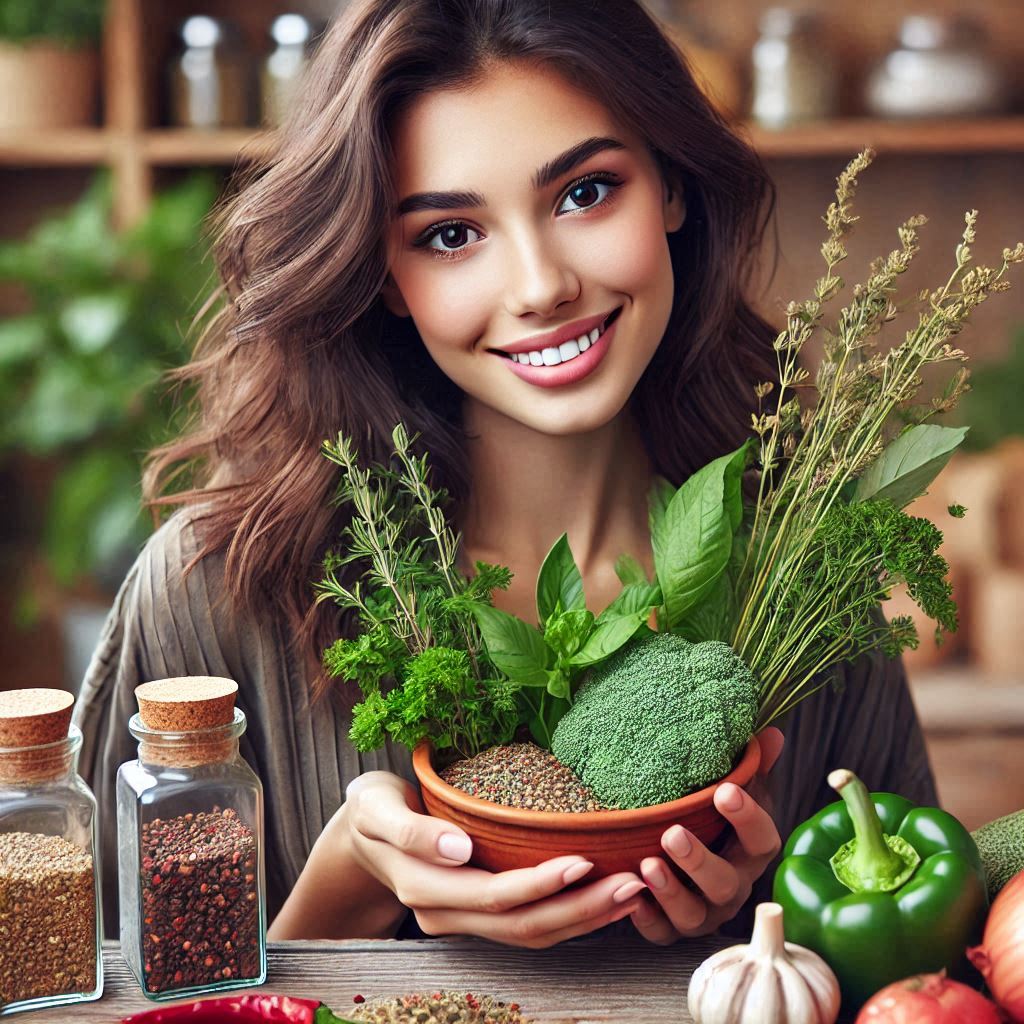
Ever find yourself wondering how the right sprinkle or dash of something can completely transform a meal? That is the magic of herbs and spices. They sit quietly in your pantry, waiting to bring personality to your plate.
Let’s clear up one big misunderstanding right away: herbs and spices aren’t the same thing. Herbs usually come from the leafy part of plants and are typically fresh or dried, like basil or mint. Spices, on the other hand, are all about the parts like seeds, bark, or roots, such as cinnamon and turmeric.
These delicious wonders have been spicing up our lives for thousands of years. Spices were once traded like gold, with explorers sailing to far-off lands to bring back valuable flavor treasures. They’ve shaped cuisines and cultures, weaving their heat or sweetness into history.
But it’s not all about tickling your taste buds. Herbs and spices are power-packed with health benefits. They add more than color and aroma to our dishes—they elevate the wellness factor too. Ancient herbalists and modern science agree that these flavors can help heal and fortify our bodies.
So, why am I telling you this? Because understanding what’s in your pantry is the first step toward better health. Knowing what each herb or spice can do for you is like having a secret weapon in your battle for a healthier lifestyle.
Explore Your Pantry: A List of Health-Boosting Spices
Lemme give you the lowdown on some kitchen heroes hiding in plain sight. These spices might be ordinary on the shelf, but they’re packing serious health benefits. They’re kind of like that quiet genius at a party, making everything better without making a fuss.
Starting with cinnamon, a sweet marvel that does more than jazz up your oatmeal. This spice helps in balancing blood sugar levels, making it a great friend for those mindful of glucose spikes. Plus, it’s believed to boost metabolism, so sprinkle away.

Then there’s turmeric, the golden legend. Known for its potent anti-inflammatory and antioxidant properties, it’s like a shield for your body’s defense system. A little turmeric in your cooking can go a long way in keeping things running smooth.

Ginger is another superstar you want in your spice lineup. It’s fantastic for digestion—a natural remedy for stomach woes—and it’s got this immunity-boosting mojo that makes it essential, especially during chilly months.

Ever heard folks singing the praises of garlic? There’s a reason for that. With properties that support heart health and its natural antimicrobial power, garlic does more than just fend off vampires. It’s a heart’s best buddy and a germ-fighter.

Don’t overlook chili peppers. They’re hot in more ways than one. Not only do they provide a fiery kick, but they’re also known to boost metabolism and improve brain health. Chili peppers have a little capsaicin magic working for you there.

So, these spices add more than just taste to your dishes—they bring a host of health benefits. They are unsung heroes that deserve a front-row seat in your cooking adventures, mixing flavor with wellness.
Practical Ways to Incorporate Herbs and Spices into Your Diet
Let’s talk about turning those spices from shelf decorations into everyday essentials. It doesn’t take much to add a punch of flavor and a dash of health to your meals. Start small. Just a sprinkle of cinnamon on your morning coffee or oatmeal not only makes it more delicious but also kicks off your day with added benefits.
The magic of herbs and spices is in their versatility. Mix up your own spice blends tailored to your taste buds. Love a bit of heat? Combine paprika, cumin, and garlic powder for a smoky rub that flavors chicken or veggies. Feeling adventurous? Try a pinch of turmeric and ginger into soups or stews.
Herbs and spices are not just for your meals; they can elevate your drinks too. Herbal teas, like chamomile and peppermint, provide calming effects and digestive benefits. Or jazz up your water with fresh mint leaves or ginger slices for a refreshing twist.
While experimenting is fun, it’s also wise to know your limits. Some spices can be potent, and everyone’s tolerance is different. It’s all about balancing flavors and knowing what your body loves or not. Always be on the lookout for allergies, especially if you’re trying something new.
Incorporating herbs and spices into your diet is all about exploring what works for you. They can transform ordinary meals into an experience, turning health into something exciting and tasty.



